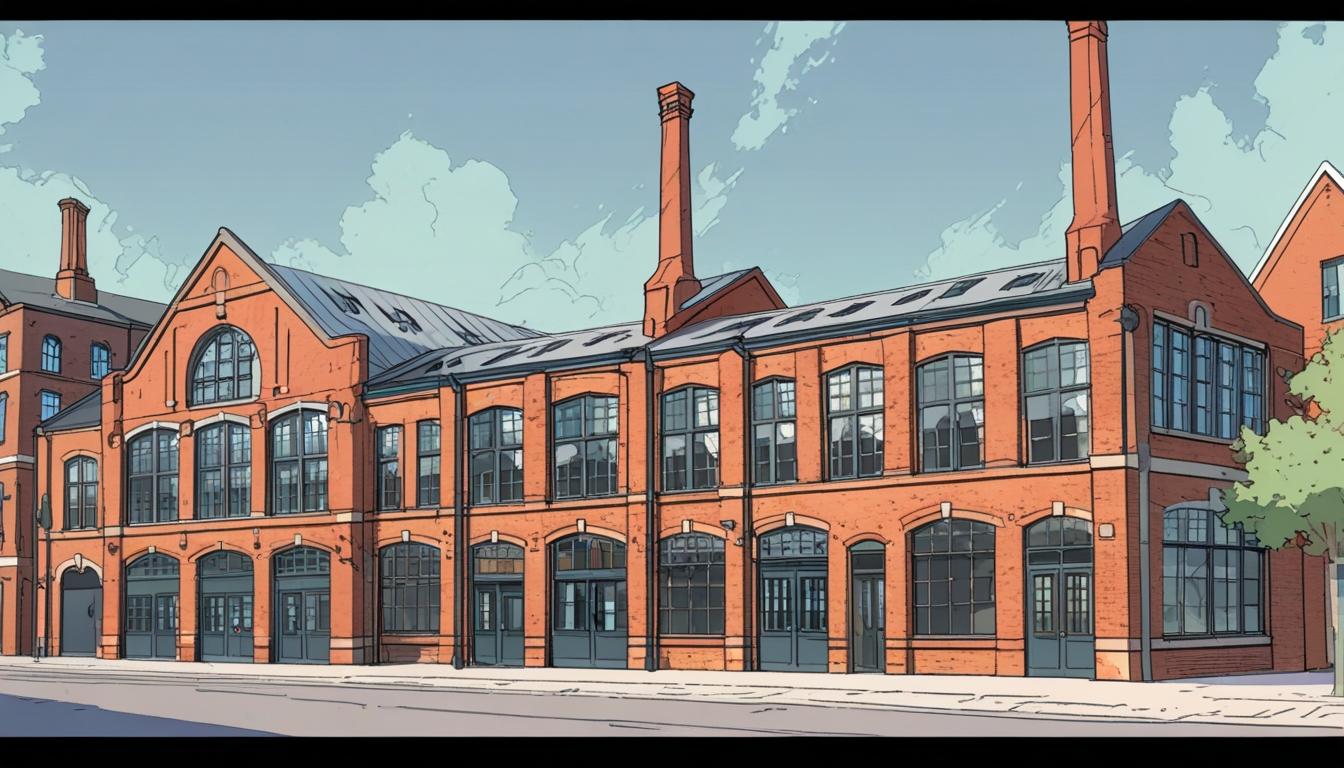Councillors in Leicester have approved plans for the redevelopment of a historic factory site on Wharf Street South, marking a significant step towards transforming a derelict area into new residential homes. The decision was made during a meeting of the Leicester City Council’s planning committee earlier this month, where most members expressed support for the project aimed at revitalising the long-neglected site.
The redevelopment proposal includes the demolition of most existing buildings on the site, with the exception of a locally-listed boot and shoe factory constructed in the 1800s. This historical structure, designed by architect Stockdale Harrison, will be preserved and converted into three new homes. Harrison is also known for his work on notable Leicester buildings like the Exchange Buildings in Rutland Street and the Abbey Pumping Station. The factory is characterised by its Gothic-revival style and was formerly the venue for the 1990s nightclub Starlite 2001.
Councillors highlighted that the site had been largely abandoned for approximately three decades, expressing their satisfaction that the redevelopment would create much-needed housing. The scheme is expected to yield 54 new homes, including a mix of 31 one-bedroom and 23 two-bedroom flats, primarily situated in a new apartment block. Approval of the development, however, is contingent upon the completion of a bat survey to ascertain environmental impacts.
Concerns were raised during discussions by Liberal Democrat councillor Nigel Porter, who critiqued the design of the proposed new apartment block, labelling it as “bland” and indicative of a lack of originality. Porter underscored the pressing need for affordable housing in the city, stating, “We are crying out in the city for affordable dwellings because so many people just can’t afford to live any more. It’s so expensive.” He advocated for at least a small number of affordable units to be included in the project, suggesting that the developer could "squeeze a few in," even if it differed from standard expectations for such developments.
In response, the developer, Design Studio Architects, contended that incorporating affordable housing would compromise the financial viability of the project. This assessment found support among planning officers, who believed the proposed benefits of the scheme justified moving forward without affordable units.
Green Party councillor Patrick Kitterick acknowledged the validity of Coun Porter's concerns but chose to support the redevelopment based on "ruthless pragmatism." He remarked, “Developers aren’t queuing up to build there,” referring to the site’s location and its lack of appeal for high-quality designs. He noted that while the scheme may not be without flaws, it presents considerable benefits, as it would provide homes to 54 people in an area currently described as "grotty."
Following deliberations, the planning committee approved the development with a vote of 10 to 1. The project will proceed pending the completion of the bat survey, ensuring environmental considerations are adequately addressed.
Notably, the redevelopment proposal does not include provisions for regular parking spaces for residents, which some officials believe will not pose a significant issue due to the site's proximity to the city’s primary bus stations and the availability of a multi-storey public car park across the road for visitors. Additionally, the plans include provisions for 76 bicycle parking spaces.
Source: Noah Wire Services
